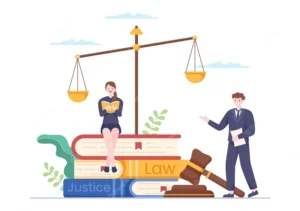Unlocking the Essentials: Key Principles of Business Law

In the labyrinth of commerce and entrepreneurship, the guiding light is often the law. Business law, with its intricate framework, is the silent partner of every enterprise. Whether you’re a startup founder, an established business owner, or just curious about the legal underpinnings of the corporate world, this comprehensive exploration of the key principles of business law aims to demystify this complex domain.
Contents
The Bedrock of Business Law
At its core, business law, also known as commercial law, regulates the interactions, transactions, and conduct of businesses. This vast field encompasses contracts, intellectual property, employment, real estate, and more. Let’s delve into the foundational principles that form the backbone of business law.
1. Contractual Clarity
Contracts are the lifeblood of business. They shape agreements, delineate responsibilities, and protect interests. Understanding the fundamentals of contract law is paramount for anyone engaged in commerce. A contract is a legally binding agreement between two or more parties that defines their rights, obligations, and remedies.
Key Tenets:
- Offer and Acceptance: A contract begins with one party making an offer and another accepting it.
- Consideration: Something of value must be exchanged between the parties.
- Legality of Purpose: Contracts must have a lawful objective; otherwise, they are unenforceable.
- Capacity: All involved parties must have the legal capacity to enter into a contract.
2. Torts and Wrongs
Tort law addresses civil wrongs or injuries caused by one party to another. Within the business realm, torts encompass issues like negligence, product liability, and defamation. Familiarity with tort law is essential to shield businesses from potential legal liabilities.
Key Concepts:
- Negligence: Failure to exercise reasonable care resulting in harm to another.
- Product Liability: Businesses can be held liable for defective products.
- Defamation: False statements damaging a person’s reputation can lead to legal actions.
3. Safeguarding Intellectual Property (IP)
Intellectual property law shields the fruits of creativity and innovation, including inventions, literary works, symbols, names, and images. IP is a linchpin in business, safeguarding innovations, branding, and competitive edges.
Key Domains:
- Patents: Bestow exclusive rights to inventors for their creations.
- Copyrights: Safeguard original works like literature, music, and art.
- Trademarks: Protect brands, logos, and symbols.
- Trade Secrets: Conceal confidential business information, such as formulas or processes.
4. Employment Regulations
Employment law dictates the intricate relationship between employers and employees. Comprehending employment laws is vital for businesses to foster fair workplaces and sidestep legal quagmires.
Vital Elements:
- Employment Contracts: Clearly define terms and conditions of employment.
- Anti-discrimination Laws: Prohibit discrimination based on factors like race, gender, age, and disability.
- Wage and Hour Regulations: Prescribe minimum wage, overtime, and working hour standards.
5. Business Structures and Governance
Choosing the right business structure is a pivotal decision for entrepreneurs. The chosen legal structure affects taxation, liability, and governance.
Structure Varieties:
- Sole Proprietorship: Single owner with unlimited liability.
- Partnership: Shared ownership with shared liability.
- Corporation: A distinct legal entity with limited liability.
- Limited Liability Company (LLC): Melds liability protection with pass-through taxation.
Understanding these bedrock principles is merely the first step. Businesses must stay abreast of legal changes, ensure compliance, and seek legal counsel when traversing complex legal terrain.
Anticipating Your Queries
1. Why is contract law crucial in business?
- Contract law governs agreements, ensuring they are binding and enforceable. It establishes rights, obligations, and accountability, forming the backbone of business relationships.
2. How does tort law affect business liability?
- Tort law holds businesses accountable for civil wrongs, such as negligence or product defects. A grasp of tort liability aids businesses in mitigating and addressing legal issues.
3. Why is intellectual property law significant for businesses?
- Intellectual property law safeguards a company’s innovations, branding, and competitive edge. It’s the guardian of unique creations and ideas.
4. What are the essential facets of employment law for businesses?
- Employment law encompasses employment contracts, anti-discrimination statutes, wage and hour regulations, and workplace safety. Compliance ensures fair and lawful employment practices.
5. How does business structure influence legal obligations?
- Business structure dictates tax implications, liability exposure, and governance. Selecting the right structure is pivotal for effective legal management.
Concluding Insights
Business law is a dynamic realm that demands continuous vigilance and adherence to these fundamental principles. By grasping these essentials, individuals and organizations can navigate the legal intricacies, reduce legal risks, and construct sturdy foundations for their endeavors. It’s imperative to remain informed, seek legal counsel when necessary, and adapt to the evolving legal landscapes in the ever-evolving world of business.
Disclaimer: This article serves as an informational guide and not as legal advice. For specific legal concerns, it’s advisable to consult with a qualified attorney.









